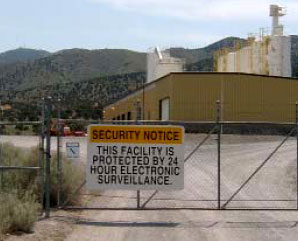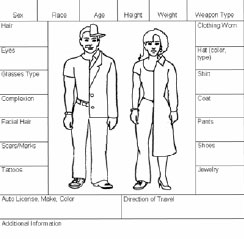Federal explosives law and regulations provide requirements and standards for the secure storage of explosives materials. To maximize the effects of regulatory compliance, the following voluntary suggestions, developed in partnership with the International Makers of Explosives (IME) and the International Society of Explosives Engineers, may serve as a helpful guide for securing explosive materials.
Security Tips
Secure Your Keys
- Restrict access to the keys for your storage magazines and trucks loaded with explosives to essential personnel only.
- Keep the keys in a secure, unmarked area, preferably not in a central location at the premises.
- Have employees use a logbook to indicate when they remove and return keys. It can enhance security and help track down missing keys.
- Consider numbering or marking keys and assigning them to specific individuals.
- If you do not share keys, conduct regular inventories of keys to ensure that you can account for all your keys.
- Change magazine locks if you lose keys or they remain in the possession of terminated employees. This will help ensure that only current employees have access to your magazines.
- Make it company policy that employees do not duplicate keys without authorization.
Secure Your Magazines
- Federal explosives regulations require licensees and permittees to keep their magazines in secure locations and inspect them visually every 7 days. Consider inspecting readily accessible magazines daily. This will help ensure that there has been no unauthorized or attempted unauthorized entry to the magazine and will allow you to assess and correct any security or safety vulnerabilities that may be present.
- Even if your explosives magazines meet the table of distances requirements, consider reassessing your magazine locations to ensure that they are in the most secure locations.
- Consider conducting regular inventories more often than once per year to ensure that there have been no thefts/losses of explosive materials.
- Have all applicable federal, state, and local agency telephone numbers readily available to report a theft, loss, or suspicious activity.
Secure Your Storage Site

- Limit access to explosives storage sites to essential personnel to limit the exposure of the magazines to theft or tampering.
- Consider installing fences, floodlights, alarms, security cameras, locked gates, or other security devices at the site to better monitor the location. Post alarm-monitoring signs in highly visible places to deter unauthorized access.
- Contact your local law enforcement agency and establish a rapport with the officers who routinely patrol your area. Familiarize them with your business hours so that they can alert you when people are present during off hours.
- Your employees are essential to securing your explosives. Train them to recognize what constitutes a suspicious customer or an unusual transaction, and to respond to thefts, losses, or emergencies involving explosive materials.
- Other agencies such as the Occupational Safety and Health Administration, the Mine Safety and Health Administration, or state agencies may have additional rules and requirements for securing storage sites. Contact these agencies for information on their requirements.
Know Your Employees
- The best way to know who is working for you is to update your list of responsible persons and employee possessors frequently. Establish an internal program to review and update these checks as required.
Know Your Vendors
- Encourage your employees to recognize the vendors who service your facility. Have the vendors' telephone number(s) readily available to help your employees contact a vendor if they need to verify unknown individuals who claim to be from the vendor.
- Have vendors check in and receive identification badges while at your facility. Escort vendors throughout your facility.
Know Your Customers
Although all persons ordering or receiving explosive materials must be licensed or permitted, licensees should also be alert to the following suspicious activities:
- The customer insists on paying in cash.
- The customer acts nervous or behaves in an unusual manner.
- The customer knows little about the product he/she is buying or its use.
- Be cautious with unsolicited email inquiries involving explosive materials, properties, blasting techniques, tunneling, etc. Please provide any suspicious emails to ATF if you believe further investigation is required.
Report Suspicious Purchases, Activities or Behavior

Suspicious activities are not always easy to identify as the possession and use of explosives may not indicate a threat or malicious intent. However, If you encounter any such activities, persons or vehicles, write down any detailed information; such as, the physical description of the person(s), the name or identification presented by the person(s), their vehicle make, model, color, and vehicle license plate number and state. If possible, obtain a copy of the person's identification document or obtain a photograph. Retain and preserve papers or other items a suspicious individual may have touched for potential law enforcement investigation.
Immediately report any and all suspicious explosives-related activities to your local federal or state law enforcement authority and the United States Bomb Data Center at 800-461-8841 (after hours, call the ATF 24 hour hotline at 800-800-3855). If you witness criminal activity occurring, contact your local federal or state law enforcement agency immediately.
Missing, Lost, or Stolen Explosives
Ensure Safety and Preserve Evidence
First, you are responsible for making sure that you and your employees are safe! Do not enter a crime scene until law enforcement authorities indicate that it is safe. Do not disturb the crime scene until law enforcement authorities have completed evidence gathering. Unless you are asked to assist, avoid the temptation to assess damage/losses until they are finished.
Report Explosives Theft/Loss
Any person who has knowledge of the theft or loss of any explosive materials from their stock must report such theft or loss within 24 hours of discovery to ATF and to appropriate local authorities. Federal explosives licensees and permittees are also encouraged to report any suspicious activities or attempted theft to ATF.
How to report explosives theft/loss
Recordkeeping and Markings
Accurate identification of explosive materials is critical to the safety and security of the public. Identifying explosives in your acquisition and disposition records ensures that law enforcement officials can trace explosives in the event that they are lost, stolen, or recovered in a crime.
The regulation at 27 CFR 555.109 requires each licensed manufacturer or importer of explosive materials to use legible marks to identify all explosive materials manufactured or imported for sale or distribution.
The regulations at 27 CFR 555, Subpart G, require explosives licensees and permittees to keep permanent records of the acquisition, disposition, and inventory of explosive materials. ATF relies on explosives licensees and permittees to make accurate and timely entries into their records. These records are essential in accounting for explosives inventory and identifying lost or stolen explosives. They are also an extremely important source of information for law enforcement during a criminal investigation.
Storage Requirements
The federal explosives regulations at 27 CFR, Part 555, Subpart K, outline the storage requirements for explosive materials. Section 555.205 specifies that licensees and permittees must keep all explosive materials in locked magazines meeting the standards in Subpart K unless they are:
- In the process of manufacture;
- Being physically handled in the operating process of a licensee or user;
- Being used; or
- Being transported to a place of storage or use by a licensee or permittee or by a person who has lawfully acquired explosive materials under Sec. 555.106.
When none of the above conditions apply, this section mandates that you keep explosive materials in magazines that meet the construction and table of distance requirements of Subpart K. Any divergence from these requirements requires prior approval by the Director, ATF, in accordance with the provisions of 27 CFR, Part 555.22. Persons with questions on this issue should contact the Explosives Industry Programs Branch in ATF Headquarters at 202-648-7120 or through email (EIPB@atf.gov).

